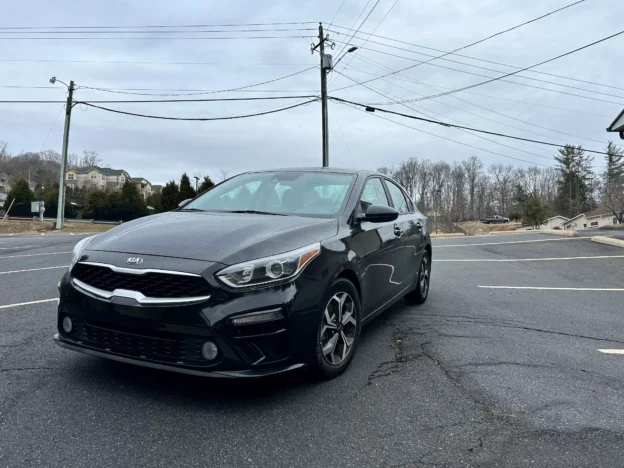Where to Buy Huntington Bank Repos
If you’re looking for a great deal on a car, truck, boat, motorcycle, RV, ATV, or even real estate, consider purchasing a Huntington Bank Repos. Huntington Bank, based in Ohio, offers such opportunities. This guide will help you understand how to find and buy these repossessed properties, often called “repos.”
Understanding Repossessed Properties
When someone can’t continue paying for a loan on a vehicle or property, the bank takes it back. This process is known as repossession. Banks like Huntington Bank then sell these repossessed items to recover their money. As a buyer, this means you can purchase these items, often at a lower price than buying from a dealer.
Why Buy Repossessed Vehicles or Properties?
Buying a repossessed item can offer several benefits:
- Cost Savings: Since banks want to sell these items quickly, they might offer them at lower prices.
- No Middleman: Purchasing directly from the bank means there are no dealer commissions or extra fees.
- Diverse Selection: You can find various items, from cars and trucks to boats and real estate.
A Brief History of Huntington Bank
Huntington Bank started in 1866 when P.W. Huntington opened a small bank in Columbus, Ohio. Over the years, it has grown and now serves many states, including Ohio, Michigan, Pennsylvania, Indiana, and Kentucky. The bank offers various services, from personal banking to helping businesses. You can find more about their history on their About Us page.
Where to Find Huntington Bank Repos
Huntington Bank lists its available repossessed properties on their website. To see what’s currently for sale, visit their REO Property Listings. “REO” stands for “Real Estate Owned,” but this page may also list other repossessed items.
Steps to Buy Repossessed Properties from Huntington Bank
- Visit the REO Listings Page: Start by checking the available properties on Huntington’s REO Property Listings.
- Review Available Items: Look through the list to find items you’re interested in.
- Contact the Bank: Each listing should have contact information. Reach out to learn more about the item and how to make an offer.
- Inspect the Item: If possible, see the vehicle or property in person to check its condition.
- Make an Offer: Follow the bank’s process to submit your offer.
- Finalize the Purchase: If your offer is accepted, complete the necessary paperwork and payment.
Using RepoFinder to Locate Bank Repos
RepoFinder is a helpful website that connects buyers directly with banks and credit unions selling repossessed items. This means you can avoid extra fees and deal directly with the source. RepoFinder is unique because it provides this information all in one place, making your search easier. You can start your search on their homepage.
Benefits of Using RepoFinder
- Direct Access: Connect directly with banks and credit unions, cutting out middlemen.
- No Extra Fees: Since you’re dealing directly with the institution, there are no additional commissions.
- Comprehensive Listings: Find a wide range of repossessed items from various banks and credit unions.
How RepoFinder Stands Out
Unlike dealers or auction sites that may charge fees or commissions, RepoFinder links you directly to the banks and credit unions. This approach is similar to buying from a private seller, allowing you to negotiate directly and potentially save money. RepoFinder is the only website that offers this service, making it a valuable resource for buyers.
Common Questions About Buying Repossessed Vehicles
1. Are repossessed vehicles in good condition?
Many repossessed vehicles are in good shape, but it’s essential to inspect them yourself or hire a professional to ensure you’re aware of any issues.
2. Can I test drive a repossessed vehicle before buying?
Policies vary by bank. Some may allow test drives, while others might not. It’s best to contact the bank directly to find out.
3. Do repossessed vehicles come with warranties?
Typically, repossessed vehicles are sold “as-is,” meaning there’s no warranty. However, some banks might offer limited warranties or allow you to purchase one separately.
4. How do I finance a repossessed vehicle?
You can arrange financing through your bank, credit union, or other lenders. Some banks selling the repossessed vehicle might offer financing options as well.
5. Is buying a repossessed vehicle risky?
As with any used vehicle purchase, there are risks. However, by doing thorough research, inspecting the vehicle, and understanding the buying process, you can make an informed decision.
Why Do Banks Sell Repossessed Vehicles?
When a borrower can’t make their loan payments, the bank takes back the vehicle or property. Banks aren’t in the business of holding onto these items, so they sell them to recover their money. This process allows buyers to purchase items, often at a lower cost, directly from the bank.
Tips for First-Time Buyers of Huntington Bank Repossessed Vehicles
- Do Your Research: Understand the market value of the vehicle you’re interested in.
- Check the Vehicle’s History: Use services like Carfax to check for accidents or major issues.
- Inspect the Vehicle: If possible, bring a mechanic to evaluate its condition.
- Set a Budget: Factor in repair costs, registration fees, and insurance.
- Act Quickly: Repossessed vehicles sell fast, so be ready to make an offer if you find a good deal.
Conclusion
Huntington Bank repossessed vehicles and properties offer a fantastic opportunity for buyers looking for a deal. By purchasing directly from the bank, you can save money and avoid dealer markups. Using RepoFinder is a great way to locate these deals, ensuring you have access to the best opportunities. Start your search today and find a great deal on a repossessed vehicle or property!

